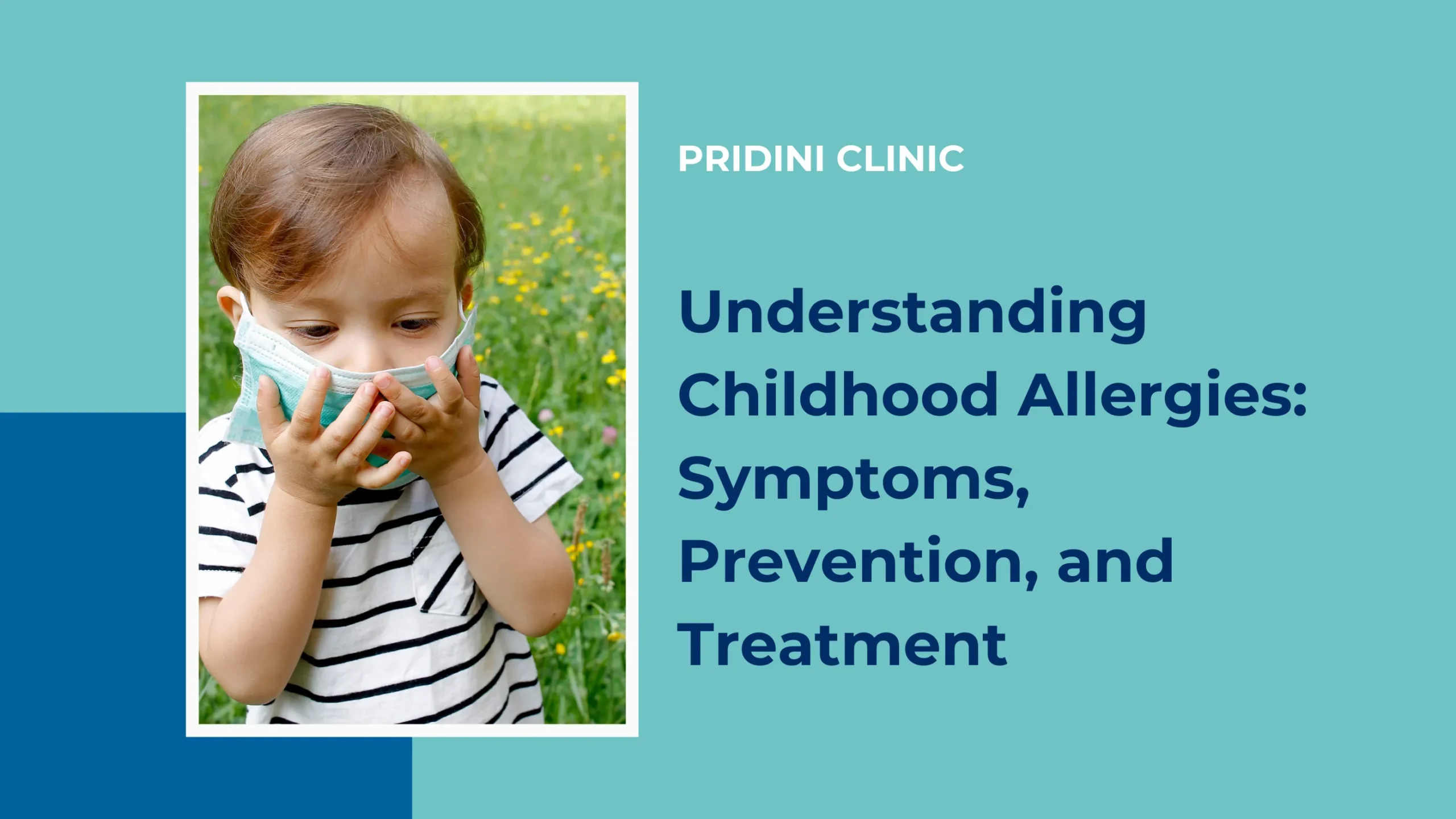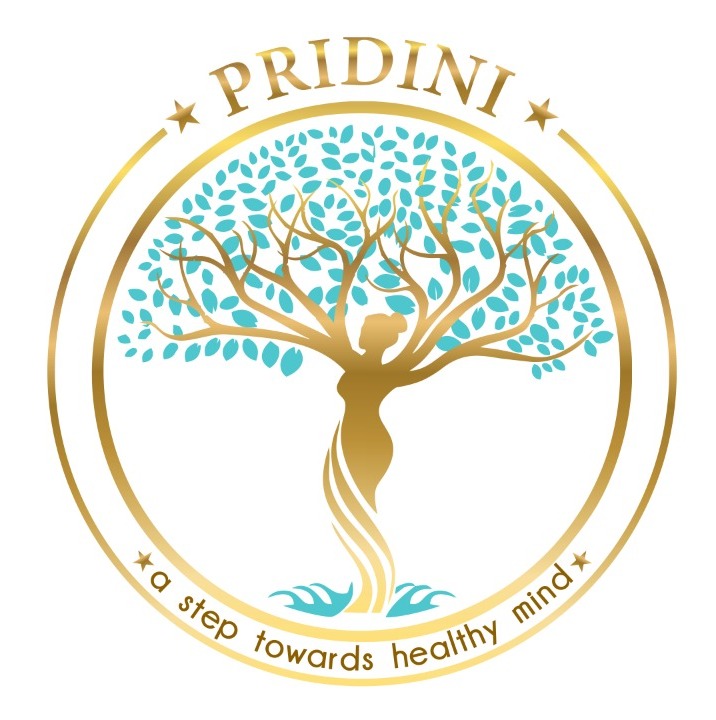Childhood allergies are a common concern for many parents, with various allergens affecting children differently. These allergic reactions can range from mild to severe and can significantly impact a child’s daily life at home and school. At Pridini Clinic, we are committed to helping parents understand and manage childhood allergies effectively. In this blog, we will explore childhood allergies, common allergens and how to avoid them, how to recognize allergic reactions, treatment options, tips for managing allergies, and when to consult a pediatrician for allergy testing.
What Are Childhood Allergies?
Childhood allergies occur when a child’s immune system overreacts to substances that are generally harmless to most people, such as pollen, food, or pet dander. These substances, known as allergens, trigger an immune response that leads to symptoms ranging from mild irritation to life-threatening reactions.
Allergies can develop at any age, and children with a family history of allergies, asthma, or eczema are more likely to develop them. Common childhood allergies include hay fever (allergic rhinitis), food allergies, asthma, and skin allergies like eczema.
Common Allergens and How to Avoid Them
Understanding the common allergens that may affect your child is key to preventing allergic reactions. Here are some of the most common allergens and tips on how to avoid them:
- Pollen: Commonly found in trees, grasses, and weeds, pollen can trigger hay fever. To reduce exposure, keep windows closed during high pollen seasons, use air purifiers, and encourage your child to shower and change clothes after playing outside.
- Dust Mites: These tiny insects thrive in bedding, carpets, and upholstery. To minimize dust mites, wash bedding in hot water weekly, use dust mite-proof covers on mattresses and pillows, and vacuum regularly.
- Pet Dander: Proteins in an animal’s skin, saliva, and urine can cause allergic reactions. If your child is allergic, consider keeping pets out of their bedroom, washing pets regularly, and using air purifiers to reduce dander in the home.
- Mold: Mold spores can trigger allergies and are commonly found in damp areas like bathrooms and basements. Reduce mold by keeping these areas well-ventilated and using dehumidifiers.
- Food Allergens: Common allergens include milk, eggs, peanuts, tree nuts, soy, wheat, fish, and shellfish. Read food labels carefully, avoid cross-contamination, and educate your child on what foods to avoid.
Recognizing the Signs of an Allergic Reaction in Your Child
Recognizing the early signs of an allergic reaction can help you take quick action to manage the symptoms and prevent them from worsening. Common signs of an allergic reaction in children include:
- Skin Reactions: Hives, rashes, or itching are common indicators of an allergic reaction, especially to food or insect stings.
- Respiratory Issues: Sneezing, coughing, wheezing, nasal congestion, and shortness of breath can occur, particularly with pollen, dust mites, or pet dander allergies.
- Gastrointestinal Symptoms: Stomach pain, vomiting, or diarrhea may signal a food allergy.
- Swelling: Swelling of the lips, tongue, or face can be a severe sign of an allergic reaction and may indicate anaphylaxis, a potentially life-threatening condition that requires immediate medical attention.
If you notice any of these symptoms, especially in combination, it’s important to seek medical care immediately.
Treatment Options for Childhood Allergies
Managing childhood allergies often involves a combination of strategies to reduce exposure to allergens and alleviate symptoms. Treatment options include:
- Avoidance: Avoiding known allergens is the most effective way to prevent allergic reactions. This may involve dietary changes, environmental modifications, or lifestyle adjustments.
- Medications: Over-the-counter or prescription antihistamines, decongestants, and nasal sprays can help relieve symptoms. For more severe allergies, your doctor may prescribe corticosteroids or epinephrine (for anaphylaxis).
- Immunotherapy: Also known as allergy shots, immunotherapy gradually desensitizes the immune system to specific allergens over time. This treatment is particularly effective for pollen, dust mites, and pet dander allergies.
- Emergency Action Plans: If your child has severe allergies, it’s essential to have an emergency action plan in place, including the use of an epinephrine auto-injector (EpiPen) and knowing when to seek emergency care.
Tips for Managing Allergies at Home and School
Managing your child’s allergies involves creating a safe environment both at home and at school. Here are some tips:
- Create an Allergen-Free Zone: Designate certain areas of your home as allergen-free, such as your child’s bedroom, where allergens like pet dander and dust mites are minimized.
- Educate Your Child: Teach your child about their allergies, including what triggers them, how to avoid them, and what to do if they have a reaction.
- Communicate with School Staff: Inform your child’s school about their allergies, and provide them with an action plan, including medication like antihistamines or an epinephrine auto-injector if necessary.
- Prepare Allergy-Friendly Snacks: Pack allergy-friendly snacks and meals for your child, especially if they have food allergies, to prevent accidental exposure to allergens.
When to Consult a Pediatrician for Allergy Testing
If you suspect your child has allergies, it’s important to consult a pediatrician for proper diagnosis and treatment. Allergy testing can identify specific allergens causing your child’s symptoms, allowing for targeted management strategies. Your pediatrician may recommend skin prick tests, blood tests, or elimination diets to determine the cause of your child’s allergies.
It’s also crucial to consult a pediatrician if your child’s allergies are severe, if they experience frequent allergic reactions, or if over-the-counter treatments are not effectively managing their symptoms.
At Pridini Clinic, we are dedicated to helping you manage your child’s allergies with comprehensive care and support. If you have concerns about your child’s allergies or need guidance on prevention and treatment, contact us today to schedule an appointment.


